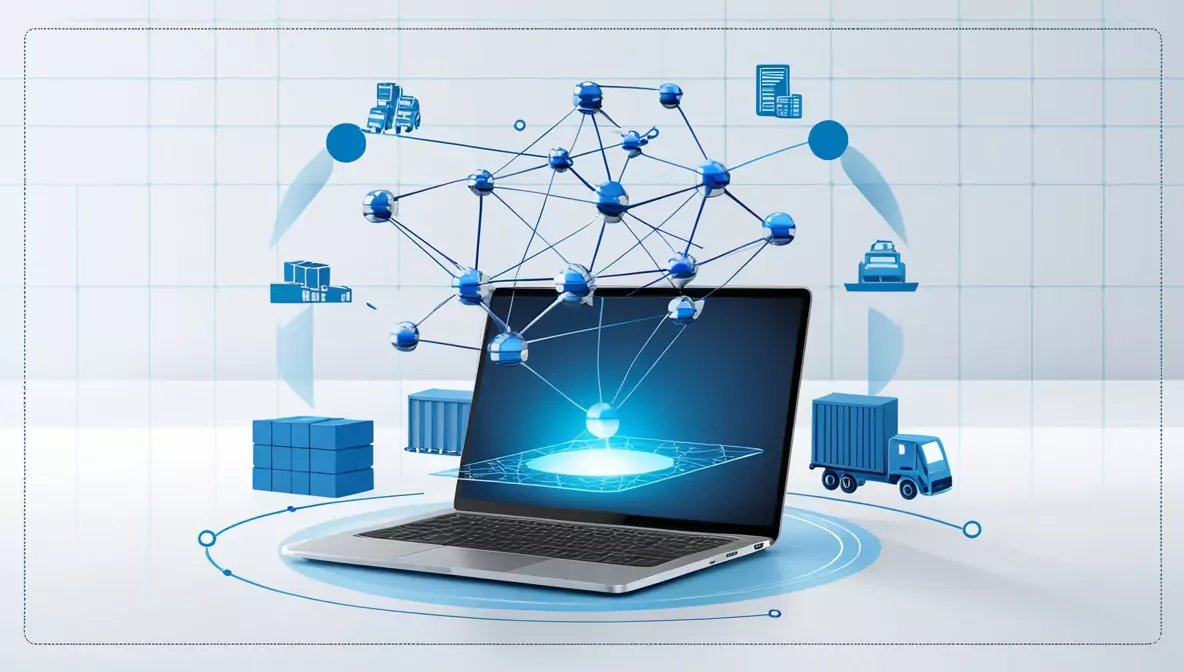Efficient supply chain management (SCM) is crucial for businesses aiming to remain competitive in today’s fast-paced global market. One of the most powerful tools to enhance supply chain processes is an Enterprise Resource Planning (ERP) system. ERP software integrates various business functions, including procurement, production, inventory, and distribution, into a unified platform, offering unparalleled visibility and control.
This article delves into how ERP can transform supply chain management, improve efficiency, reduce costs, and enhance customer satisfaction.
What Is Supply Chain Management (SCM)?
Supply Chain Management refers to the coordination of all processes involved in producing and delivering a product or service, from raw material sourcing to final delivery. Effective SCM ensures that goods flow smoothly, costs remain under control, and customer demands are met.
However, managing a supply chain involves numerous moving parts, often leading to inefficiencies, delays, or miscommunication. This is where ERP systems prove invaluable.
The Role of ERP in Supply Chain Management
ERP systems unify business processes into a centralized database, enabling real-time data sharing and streamlined workflows. Here’s how ERP enhances various aspects of supply chain management:
1. Real-Time Visibility and Data Integration
ERP provides a single source of truth for supply chain operations. With real-time data from procurement, production, and distribution, businesses can:
- Track inventory levels across multiple locations.
- Monitor shipments and delivery schedules.
- Identify bottlenecks or inefficiencies instantly.
This visibility empowers managers to make data-driven decisions, improving overall responsiveness and agility.
2. Improved Demand Forecasting
Accurate demand forecasting is essential for balancing supply and demand. ERP systems analyze historical sales data, market trends, and customer behavior to predict future demand. This helps businesses:
- Avoid overproduction or stockouts.
- Optimize inventory levels.
- Reduce carrying costs.
3. Streamlined Procurement Processes
ERP automates procurement by centralizing vendor information, purchase orders, and approval workflows. With an ERP system, businesses can:
- Identify the best suppliers based on past performance and pricing.
- Automate reorder points to prevent shortages.
- Ensure compliance with contracts and regulations.
4. Enhanced Inventory Management
ERP systems enable precise inventory tracking and management, providing insights into stock levels, turnover rates, and storage costs. Benefits include:
- Reduced waste and obsolescence.
- Improved order fulfillment rates.
- Minimized holding costs by maintaining optimal stock levels.
5. Supply Chain Collaboration
Modern ERP solutions foster better collaboration with suppliers and partners by offering shared platforms for data exchange. This leads to:
- Faster communication and issue resolution.
- Improved coordination in production and delivery schedules.
- Strengthened relationships with suppliers through transparency and trust.
6. Cost Optimization
ERP systems identify cost-saving opportunities by analyzing supply chain expenses. Businesses can reduce operational costs through:
- Efficient resource allocation.
- Eliminating redundant processes.
- Automating routine tasks to save time and labor.
Key Benefits of ERP in Supply Chain Management
- Increased Efficiency: Automation and real-time data reduce manual errors and accelerate processes.
- Better Decision-Making: Comprehensive analytics and reporting tools offer actionable insights.
- Greater Agility: Rapid responses to market changes and disruptions keep operations running smoothly.
- Enhanced Customer Satisfaction: Faster delivery, better product availability, and accurate order tracking improve the customer experience.
- Regulatory Compliance: ERP systems ensure adherence to industry standards and legal requirements, reducing the risk of fines.
Industry Examples: ERP in Action
Manufacturing
In manufacturing, ERP systems optimize production schedules by aligning them with supply chain demands. Real-time monitoring of raw materials ensures production runs seamlessly, avoiding delays or excess inventory.
Retail
Retailers use ERP to manage multi-channel inventory and streamline order fulfillment. By integrating sales and supply chain data, ERP enables accurate stock replenishment and reduces overstocking.
Healthcare
Healthcare organizations rely on ERP for managing complex supply chains involving pharmaceuticals, medical equipment, and patient care supplies. ERP ensures timely delivery and adherence to strict regulatory standards.
Challenges in Implementing ERP for SCM
Despite its benefits, implementing ERP for supply chain management comes with challenges, such as:
- High Initial Costs: ERP systems require significant investment in software, infrastructure, and training.
- Change Management: Employees may resist adopting new processes or technology.
- Customization Needs: Tailoring ERP systems to specific supply chain requirements can be complex.
To overcome these challenges, businesses should:
- Choose a scalable ERP solution that aligns with their needs.
- Invest in employee training to ensure smooth adoption.
- Work with experienced ERP vendors for seamless implementation.
Future Trends: ERP and the Evolving Supply Chain
As technology advances, ERP systems are becoming even more powerful with features like:
- Artificial Intelligence (AI): AI-powered analytics enhance demand forecasting and decision-making.
- Internet of Things (IoT): IoT devices enable real-time tracking of shipments and inventory.
- Cloud ERP: Cloud-based solutions offer greater accessibility, scalability, and cost-effectiveness.
These innovations are reshaping supply chain management, enabling businesses to achieve unprecedented levels of efficiency and agility.
Conclusion: Transforming Supply Chain Management with ERP
ERP systems have revolutionized supply chain management by providing comprehensive visibility, streamlining processes, and reducing costs. Whether you’re a small business or a global enterprise, leveraging ERP can enhance your supply chain’s efficiency and adaptability.
As competition intensifies and customer expectations grow, adopting an ERP system tailored to your business needs is no longer a luxury—it’s a necessity. By integrating ERP into your supply chain, you’ll be better equipped to navigate challenges, seize opportunities, and deliver exceptional value to your customers.
